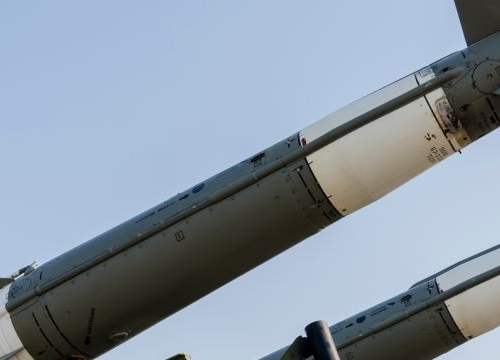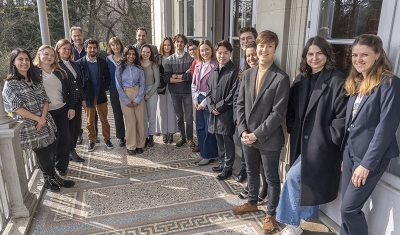Changing the Rules of the (Nuclear) Game: Voices from the Humanitarian, Technological, Strategic and Legal Fields
Geneva Academy Talks


Adobe
Groundbreaking advances towards the elimination of nuclear weapons occur at the same time as the spectre of nuclear annihilation resurfaces in different corners of the globe.
On one hand, the Treaty on the Prohibition of Nuclear Weapons (TPNW) entered into force in early 2021 with the support of a large number of states, complementing the existing non-proliferation architecture and the (much criticized) conclusions offered by the International Court of Justice in its 1996 Advisory Opinion on the Legality of the Threat or Use of Nuclear Weapons. On the other, the risks of a nuclear escalation that flow from the conflict in Ukraine or the tests of North Korea represent the most serious articulations of nuclear warfare since the Cuban missile crisis in 1962 and the stand-off between India and Pakistan in the early 2000s.
The current use of the nuclear threat to shield (as opposed to prevent or circumscribe) an invasion, the blurring distinction between nuclear and conventional warfare, the role of the victim state and that of the international community at large raise the question of whether the premises upon which the nuclear discourse was built for the past 75 years – deterrence, reciprocity, the preeminence of state interests – are still valid today, and what this implies for the applicable legal framework and scope for legal regulation.
This IHL Talk will consider these questions through a multi-disciplinary lens, interrogating experts from diverse disciplines in order to obtain a deeper and more comprehensive understanding of all the aspects contributing to the nuclear debate.
The topic of nuclear weapons and their place in the contemporary world will be addressed by taking into account their humanitarian impact, the impact of technological advancements, the ongoing relevance of the deterrence narrative and the implications on the international legal framework, including the scope for international norms to circumscribe and govern technological and strategic dynamics.
Moderation
- Ana Srovin Coralli, Teaching Assistant, Geneva Academy
- Francesco Romani, Research Fellow, Geneva Academy
Panelists
- Eirini Giorgou, Legal Adviser, International Committee of the Red Cross' Arms and Conduct of Hostilities Unit
- Thomas Greminger, Director, Geneva Centre for Security Policy (GCSP)
- Alicia Sanders-Zakre, Policy and Research Coordinator, International Campaign to Abolish Nuclear Weapons (ICAN)
About IHL Talks
The IHL Talks are a series of events, hosted by the Geneva Academy, on international humanitarian law and current humanitarian topics. Academic experts, practitioners, policymakers and journalists discuss burning humanitarian issues and their regulation under international law.
Video
Changing the Rules of the (Nuclear) Game: Voices from the Humanitarian, Technological, Strategic and Legal Fields
In this IHL Talk on nuclear weapons and their place in the contemporary world, panelists discussed the humanitarian impact, the impact of technological advancements, the ongoing relevance of the deterrence narrative and the implications on the international legal framework, including the scope for international norms to circumscribe and govern technological and strategic dynamics.







